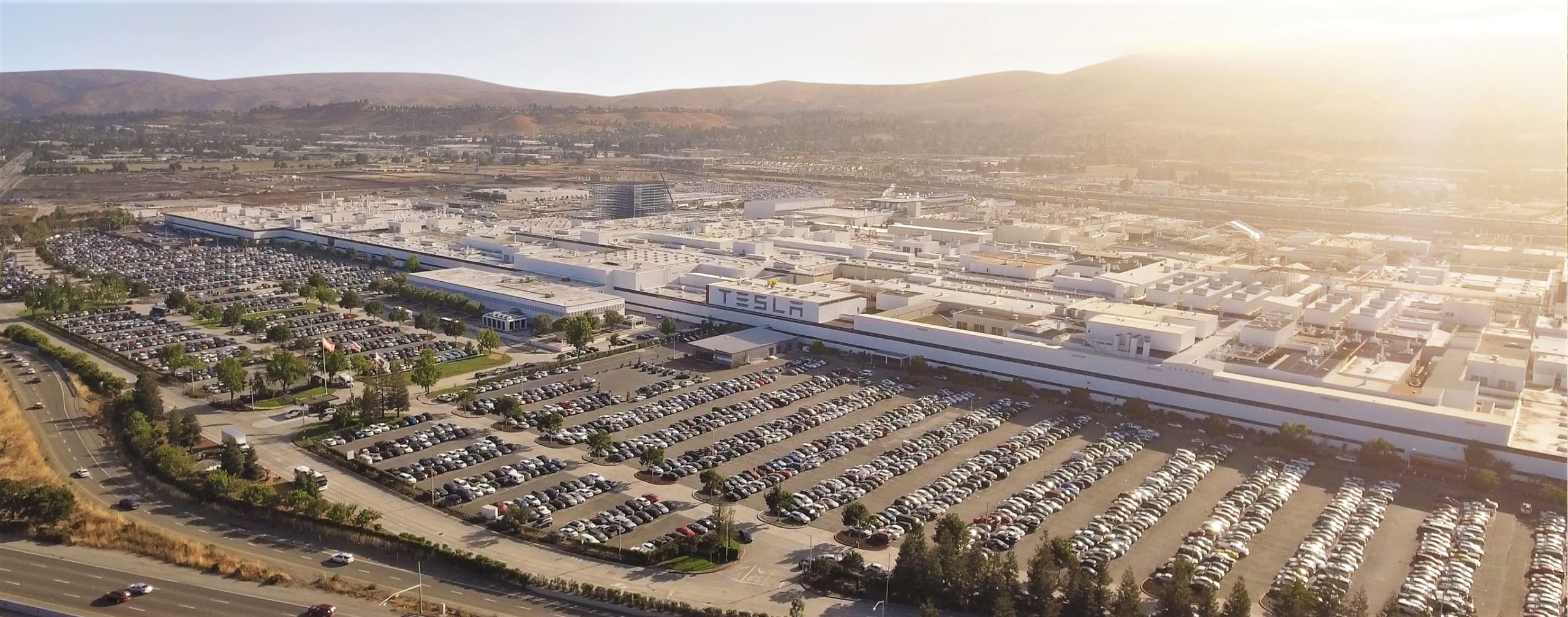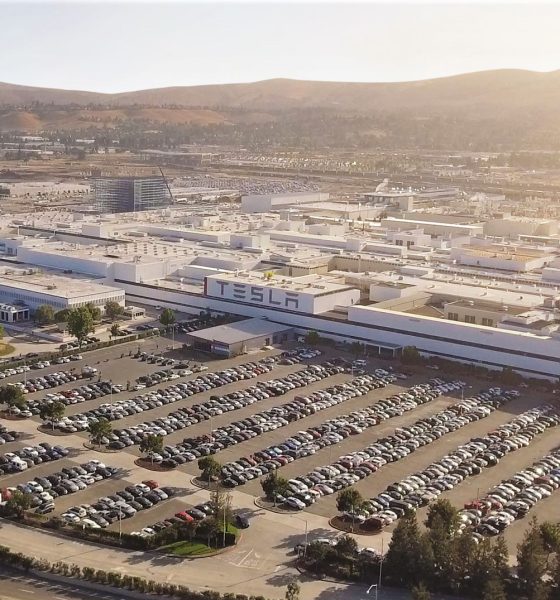

Investor's Corner
Tesla (TSLA) could be in striking distance of a short squeeze soon: Piper Jaffray
Back in the second quarter, Elon Musk predicted that the “short burn of the century” was coming soon. During that time, Tesla was racing to hit a Model 3 production rate of 5,000 units per week. The electric car maker did reach its Q2 production goals for the Model 3 then, though Elon Musk’s prediction did not come to pass.
If a recent statement from Wall Street is any indication, Tesla might actually be closing in on what could be a very notable and very realistic short squeeze.
In an appearance at CNBC’s Trading Nation, Craig Johnson, chief market technician at Piper Jaffray, stated that Tesla’s outperformance has made life quite difficult for the company’s short-sellers. This has been particularly notable recently, as Tesla shares (NASDAQ:TSLA) soared higher even as the market mostly spiraled down. In the past three months alone, TSLA has gone up 37%, while the Nasdaq plunged 8%.
Such strength, according to Johnson, has been making short-sellers quite nervous. During his recent CNBC appearance, the Piper Jaffray chief market technician stated that Tesla’s short interest ratio has been falling since around April, when it peaked at 31% of the company’s float. Johnson noted that if Tesla breaks through a key level of resistance, the company could realistically be within striking distance of a massive short covering.
“If we get a close above this $390 level, it’s going to suggest a topside breakout with a measured price objective based on the charts perhaps about $525 to $550. The shorts are going to be covering quickly and providing even a further squeeze higher from here,” the chief market technician said.
For such a squeeze to happen, though, Tesla would have to break the high of $389.61 it achieved in September 2017. A move to $525 represents a 46% upside from TSLA stock’s current price of around $360 per share as well.
Tesla is positioned pretty well this fourth quarter to deliver a big blow to short-sellers. The company’s fundamentals, after all, have been showing signs of strength since the end of the third quarter, when Tesla surprised Wall Street by posting $6.8 billion in revenue. This fourth quarter, Tesla seems poised to produce and deliver another record number of electric cars, thanks to the introduction of the Mid Range Model 3 last October. The phase-out period of the $7,500 federal tax credit in the United States is also expected to push the company’s numbers for Q4 even further.
Tesla’s Fremont factory and Gigafactory 1 in Nevada seem to be operating optimally as well. Elon Musk has noted that Tesla is now at a point where producing 5,000 Model 3 per week is no big deal, and the pieces are being put in place for a ramp towards even higher production numbers. The Model 3’s most disruptive variant, the $35,000 Standard Range RWD version, is getting closer to production. Overseas, progress for the construction of Gigafactory 3 in Shanghai is also moving at an extremely rapid pace.
Tesla had the cards stacked against it for the most part of the year, but the company has powered through. With possibly even better fundamentals this fourth quarter, Elon Musk’s predicted “short burn of the century” might finally be coming — and just as it is with many things Tesla, it could just be happening in Elon Time.
As of writing, Tesla stock is trading +0.77% at $360.73.
Disclosure: I have no ownership in shares of TSLA and have no plans to initiate any positions within 72 hours.

Elon Musk
Tesla to a $100T market cap? Elon Musk’s response may shock you

There are a lot of Tesla bulls out there who have astronomical expectations for the company, especially as its arm of reach has gone well past automotive and energy and entered artificial intelligence and robotics.
However, some of the most bullish Tesla investors believe the company could become worth $100 trillion, and CEO Elon Musk does not believe that number is completely out of the question, even if it sounds almost ridiculous.
To put that number into perspective, the top ten most valuable companies in the world — NVIDIA, Apple, Alphabet, Microsoft, Amazon, TSMC, Meta, Saudi Aramco, Broadcom, and Tesla — are worth roughly $26 trillion.
Will Tesla join the fold? Predicting a triple merger with SpaceX and xAI
Cathie Wood of ARK Invest believes the number is reasonable considering Tesla’s long-reaching industry ambitions:
“…in the world of AI, what do you have to have to win? You have to have proprietary data, and think about all the proprietary data he has, different kinds of proprietary data. Tesla, the language of the road; Neuralink, multiomics data; nobody else has that data. X, nobody else has that data either. I could see $100 trillion. I think it’s going to happen because of convergence. I think Tesla is the leading candidate [for $100 trillion] for the reason I just said.”
Musk said late last year that all of his companies seem to be “heading toward convergence,” and it’s started to come to fruition. Tesla invested in xAI, as revealed in its Q4 Earnings Shareholder Deck, and SpaceX recently acquired xAI, marking the first step in the potential for a massive umbrella of companies under Musk’s watch.
SpaceX officially acquires xAI, merging rockets with AI expertise
Now that it is happening, it seems Musk is even more enthusiastic about a massive valuation that would swell to nearly four-times the value of the top ten most valuable companies in the world currently, as he said on X, the idea of a $100 trillion valuation is “not impossible.”
It’s not impossible
— Elon Musk (@elonmusk) February 6, 2026
Tesla is not just a car company. With its many projects, including the launch of Robotaxi, the progress of the Optimus robot, and its AI ambitions, it has the potential to continue gaining value at an accelerating rate.
Musk’s comments show his confidence in Tesla’s numerous projects, especially as some begin to mature and some head toward their initial stages.
Elon Musk
Tesla director pay lawsuit sees lawyer fees slashed by $100 million
The ruling leaves the case’s underlying settlement intact while significantly reducing what the plaintiffs’ attorneys will receive.

The Delaware Supreme Court has cut more than $100 million from a legal fee award tied to a shareholder lawsuit challenging compensation paid to Tesla directors between 2017 and 2020.
The ruling leaves the case’s underlying settlement intact while significantly reducing what the plaintiffs’ attorneys will receive.
Delaware Supreme Court trims legal fees
As noted in a Bloomberg Law report, the case targeted pay granted to Tesla directors, including CEO Elon Musk, Oracle founder Larry Ellison, Kimbal Musk, and Rupert Murdoch. The Delaware Chancery Court had awarded $176 million to the plaintiffs. Tesla’s board must also return stock options and forego years worth of pay.
As per Chief Justice Collins J. Seitz Jr. in an opinion for the Delaware Supreme Court’s full five-member panel, however, the decision of the Delaware Chancery Court to award $176 million to a pension fund’s law firm “erred by including in its financial benefit analysis the intrinsic value” of options being returned by Tesla’s board.
The justices then reduced the fee award from $176 million to $70.9 million. “As we measure it, $71 million reflects a reasonable fee for counsel’s efforts and does not result in a windfall,” Chief Justice Seitz wrote.
Other settlement terms still intact
The Supreme Court upheld the settlement itself, which requires Tesla’s board to return stock and options valued at up to $735 million and to forgo three years of additional compensation worth about $184 million.
Tesla argued during oral arguments that a fee award closer to $70 million would be appropriate. Interestingly enough, back in October, Justice Karen L. Valihura noted that the $176 award was $60 million more than the Delaware judiciary’s budget from the previous year. This was quite interesting as the case was “settled midstream.”
The lawsuit was brought by a pension fund on behalf of Tesla shareholders and focused exclusively on director pay during the 2017–2020 period. The case is separate from other high-profile compensation disputes involving Elon Musk.
Investor's Corner
Tesla (TSLA) Q4 and FY 2025 earnings call: The most important points
Executives, including CEO Elon Musk, discussed how the company is positioning itself for growth across vehicles, energy, AI, and robotics despite near-term pressures from tariffs, pricing, and macro conditions.

Tesla’s (NASDAQ:TSLA) Q4 and FY 2025 earnings call highlighted improving margins, record energy performance, expanding autonomy efforts, and a sharp acceleration in AI and robotics investments.
Executives, including CEO Elon Musk, discussed how the company is positioning itself for growth across vehicles, energy, AI, and robotics despite near-term pressures from tariffs, pricing, and macro conditions.
Key takeaways
Tesla reported sequential improvement in automotive gross margins excluding regulatory credits, rising from 15.4% to 17.9%, supported by favorable regional mix effects despite a 16% decline in deliveries. Total gross margin exceeded 20.1%, the highest level in more than two years, even with lower fixed-cost absorption and tariff impacts.
The energy business delivered standout results, with revenue reaching nearly $12.8 billion, up 26.6% year over year. Energy gross profit hit a new quarterly record, driven by strong global demand and high deployments of MegaPack and Powerwall across all regions, as noted in a report from The Motley Fool.
Tesla also stated that paid Full Self-Driving customers have climbed to nearly 1.1 million worldwide, with about 70% having purchased FSD outright. The company has now fully transitioned FSD to a subscription-based sales model, which should create a short-term margin headwind for automotive results.
Free cash flow totaled $1.4 billion for the quarter. Operating expenses rose by $500 million sequentially as well.
Production shifts, robotics, and AI investment
Musk further confirmed that Model S and Model X production is expected to wind down next quarter, and plans are underway to convert Fremont’s S/X line into an Optimus robot factory with a capacity of one million units.
Tesla’s Robotaxi fleet has surpassed 500 vehicles, operating across the Bay Area and Austin, with Musk noting a rapid monthly expansion pace. He also reiterated that CyberCab production is expected to begin in April, following a slow initial S-curve ramp before scaling beyond other vehicle programs.
Looking ahead, Tesla expects its capital expenditures to exceed $20 billion next year, thanks to the company’s operations across its six factories, the expansion of its fleet expansion, and the ramp of its AI compute. Additional investments in AI chips, compute infrastructure, and future in-house semiconductor manufacturing were discussed but are not included in the company’s current CapEx guidance.
More importantly, Tesla ended the year with a larger backlog than in recent years. This is supported by record deliveries in smaller international markets and stronger demand across APAC and EMEA. Energy backlog remains strong globally as well, though Tesla cautioned that margin pressure could emerge from competition, policy uncertainty, and tariffs.








